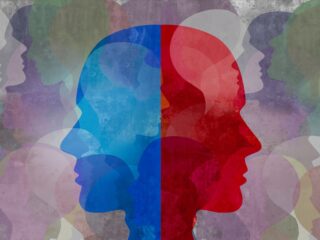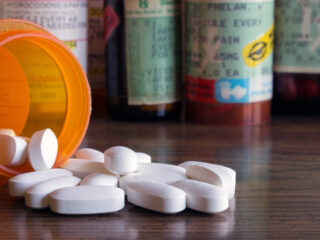Throughout North America — which encompasses the United States and Canada — we’ve been facing an epidemic of catastrophic, nearly apocalyptic proportions. Following the prescription painkiller problem that swept the nation from the late 1990s through the 2000s, many individuals have turned to heroin as the more powerful, less expensive, and more readily available alternative for their opioid addictions. As a result, communities large and small have been ravaged by this unprecedented spike in heroin use, resulting in some of the highest overdose deaths rates in our nation’s history. This has prompted the attention of local government representatives, regional politicians, and even the United States President, who recently proclaimed a week of September to be Prescription Opioid and Heroin Epidemic Awareness Week.
While we have struggled with heroin here in the United States, Canada has been having its own problems with the drug. Similar to our situation below the border, Canadians have been falling prey to the addictive and deadly power of heroin for several years, and it seems that the country has resorted to some pretty desperate measures in an effort to curb rates of heroin addiction and heroin overdose deaths throughout the Canadian territories.
Over a four-month period in early 2016, it was reported that 256 Canadians died from fentanyl overdoses due to this extremely potent opioid being mixed into batches of heroin that were being distributed around the country. In fact, there was a recent surge of overdose deaths in the United States for this very same reason. As a direct response to these deaths, Health Canada initiated a movement to legalize medical grade heroin for prescription use only, which would offer an additional treatment option for physicians to use with patients who weren’t responding to other treatment methods, including the use of methadone and Suboxone.
On September 8, 2016, Canadian officials enacted legislation that made medical grade heroin available for opioid addiction treatment via prescription as a direct response to the nationwide opioid crisis that much of the entire globe has been experiencing.
What Does This Mean?
Despite the recent legalization of medical grade heroin for the purposes of addiction treatment, officials maintain that the majority of laws regarding street use of heroin remain the same. In other words, Canada’s “war on drugs” remains decidedly in place. This was a major concern to those who opposed this seemingly radical decision as many individuals assumed that this was Canada’s way of decriminalizing heroin altogether, but this has proven to not be the case. All individuals who aren’t suffering from some type of opioid addiction would be barred from having any type of access to prescription heroin, which is meant to ensure that this legalization of medicinal heroin doesn’t make the drug even more accessible and cause another surge in heroin overdose deaths.
According to those who implemented the pilot study of this controversial program, there are certain requirements an individual must meet in order to be eligible to heroin prescriptions as a form of addiction treatment. First, the individual must be a long-time heroin user rather than a user who has been addicted to the drug for just a short amount of time. Additionally, the user must have had a minimum of two unsuccessful attempts at sobriety; in other words, the individual must have previously been unable to complete treatment programs or relapsed after completing prior programs. When in the program, the individuals will be able to attend a special facility up to two or three times each day. During each visit, the individuals will be provided with unused syringes and the drugs for their injection. Meanwhile, medical staff will supervise the session in order to ensure each patient’s safety, allowing them to intervene if a patient shows signs of overdose or some other risk.
Are There Benefits to Legalizing Medical Grade Heroin?
Although the use of prescription heroin as part of an addiction treatment program may seem counterproductive to some, there have been a number of pilot studies on the effectiveness of supervised heroin use as a form of harm reduction among heroin addicts and intravenous drug users. In fact, harm reduction is surely the greatest benefit of heroin-assisted therapies such as this new therapeutic technique in Canada involving the prescription and use of heroin in supervised settings. Most heroin addicts can’t be sure of the quality or purity levels of the heroin they buy on the street; therefore, legalizing medicinal heroin ensures that addicts aren’t unknowingly injecting harmful adulterants or other chemicals into their bodies that might cause death. As well, having a safe, supervised environment in which to inject heroin ensures that these addicts are sharing needles with other drug users, which is a top cause of HIV/AIDS transmission.
Heroin-assisted therapies also provide addicts with a more accessible and less intimidating form of treatment; in programs that require abstinence, individuals must go through periods of detox as well as intensive counseling, but not every addict is able to devote so much time to getting sober due to having jobs and taking care of their families. The demands of heroin-assisted therapies are much less than abstinence-based programs, making individuals much more likely to succeed.
Drawbacks to Legalizing Supervised Heroin Use
As you might expect, the drawbacks of using heroin as part of addiction treatment are largely shared with other medication-assisted addiction treatment techniques, including those that involve the use of methadone and Suboxone. Most individuals who oppose these types of programs dislike them because patients in these types of programs aren’t actually getting sober. In fact, patients in these programs are still dependent on drugs while abstinence-based programs aim to help addicts free themselves from chemical dependence. The idea is that harm reduction — which allows addicts to continue using drugs — is incomparable with actual sobriety, which will all but eliminate any chance of overdose and disease transmission by sharing syringes.
When it comes down to it, it’s a matter of opinion. Heroin- and medication-assisted therapies may not be ideal for everyone, but there’s no denying that there are benefits and positive outcomes to these types of programs. After all, isn’t it better for an individual to join Canada’s heroin-assisted treatment than to still be buying and using street heroin?
If you are suffering from addiction and need help, contact Ohio Addiction Recovery Centers toll-free at 800-481-8457. We can provide you with more information on treatment options. We are available anytime, day or night, for a free consultation.







